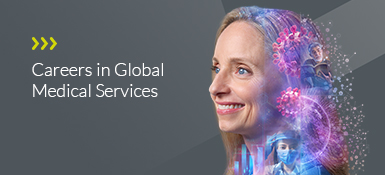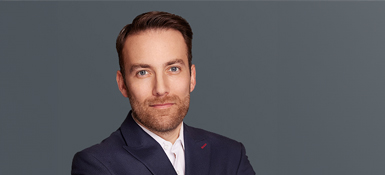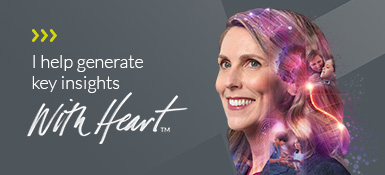Meet Anne Kasmar, Franchise Head, Infectious Diseases and Immunology

At the heart of Parexel is the world’s most unique insight-generation engine: our people.
Anne shares insights on infectious disease research, COVID-19's impact, and clinical trial innovations at Parexel. Learn how her diverse background as a clinician and scientist shapes her approach to global health challenges. Discover Parexel's collaborative culture and Anne's surprising start in science, sparked by a teenage apprenticeship in a motorcycle shop.
My name is Anne Kasmar, and I'm Franchise Head, Infectious Diseases and Immunology at Parexel. Our goal is to prevent infections so there are no patients needing treatment. I think of it as "more people, fewer patients."
What was your path into Clinical Research at Parexel?
My path to Parexel was a combination of clinical medicine, science, public health, and wanting to make new tools that help people. I started as a clinician listening to individual patients. Then I realized we needed better tools, especially for global health and TB, so I became a scientist. From there, I worked in philanthropy to understand how to make an impact on a larger scale. Finally, I realized that to make new tools that end epidemics, you need to understand product development. That's how I ended up at Parexel - we turn great science into medicines that help people.
What is the lasting impact of the COVID-19 pandemic on clinical research?
I think there are several key impacts:
- Inclusivity: We learned that research needs to be inclusive. Anyone who will benefit from a product should be included in the research.
- Speed: We saw how fast things can move when we put our minds to it. While not everything can be as fast as mRNA vaccine development, many things can be faster than they used to be.
- Collaboration: We learned that when we care and put our minds to it, we can accomplish incredible things using science and technology.
- Holistic approach: We learned that science and technology alone are not enough. We also need to consider the distribution and public understanding/acceptance of interventions.
How do you balance the individual patient level, community level, and global level in infectious disease research?
COVID-19 taught us that while we're all at risk of infectious diseases, the consequences of that risk are not equal. There can be differences in the risk of infection, but also substantial differences in the consequences of infection. For example, many people were asymptomatically infected with COVID-19, while for others with certain risk factors, infection was very dangerous.

What trait is essential to excel in clinical research?
Resilience is crucial as a Clinical Research Organization (CRO) working with sponsors. We often deal with new technologies without knowing exactly what will happen. Things can go wrong, and it's high stakes, especially for small biotech companies with one asset. We need to accept when things don't go as planned, own it for a moment, and then move forward creatively to find solutions.
How has the field of infectious diseases evolved?
There's an interesting tension in infectious diseases between the old and the new. We're in the 21st century, but we're still dealing with pathogens described in the 19th century and using some antibiotics developed in the early 20th century. I'm excited about new approaches like mRNA vaccines that represent the future while addressing age-old problems like pandemics.
I think the field is in flux. The discovery of the microbiome and the fact that we're more microbe than host by genetic material should be fundamentally changing our understanding. I believe the future of infectious diseases is about the interplay between the microbe and the host, and that modulating the host is the future of the field.
What are some of the new frontiers in your work at Parexel?
A: We're exploring new frontiers like:
- Therapeutic vaccines
- Ongoing development of antibiotics and antivirals
- Microbiome-based interventions for C. Diff
- Bacteriophage therapy, which is resurging as a potential intervention for antimicrobial-resistant infections
We're at the heart of innovation and frontier-level work in infectious diseases, and I'm excited about our future.
What does Parexel's culture mean to you?
We have kind people with diverse knowledge who share it openly to advance new therapies for patients. I think we have it all - the heart, the head, and the hands. It's thrilling to be in an environment where I can apply all my experiences from different phases of my career to advance new interventions for patients
Personal Insights
Can you tell us something most people don't know about you?
Most people at Parexel probably don't know that I got my start in science and medicine by working as an apprentice at a motorcycle shop when I was 17. I was an exchange student living on a farm, and I wanted to learn how motorcycles work. I called every motorcycle shop in the phone book and said, “Hi, I'm an American. Can I work in your motorcycle shop?” I learned that there are fluids that go into a chamber, and you have combustion, and you have an engine. And maybe there are ways in which those kinds of scientific principles apply to us. And isn't that interesting? And how do we work? I wanted to know more!
In the picture, you see my work overalls from that time! I always kept them as a reminder.

EXPLORE PAREXEL
-
 Learn More
Learn MoreAs a Medical Director you advise on the best path for clinical trials
Make a global impact on patient lives by monitoring and strategizing clinical research. Drive healthcare innovation!
-
 Learn More
Learn MoreMeet Andreas: Franchise Head, Neurosciences, Ophthalmology, and Rare Diseases
Read Andreas' insights on challenges and triumphs in neuroscience clinical trials, Parexel's patient-first approach, and advice for aspiring medical directors.
-
 Learn More
Learn MoreMeet Stacy Hurt, Chief Patient Officer at Parexel
Insights on Parexel's patient-centric approach, innovative strategies, and authentic culture in clinical research. Learn how Stacy's unique experiences shape the future of clinical trials.
Featured Jobs
Sign up for our Talent Community
Sign up and we’ll reach out with job alerts when positions that match your career interests become available. We’ll also share periodic updates about the latest company news and events.

